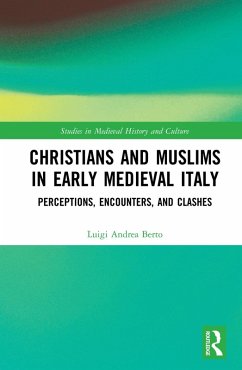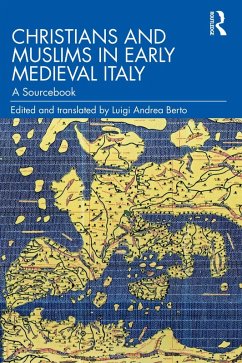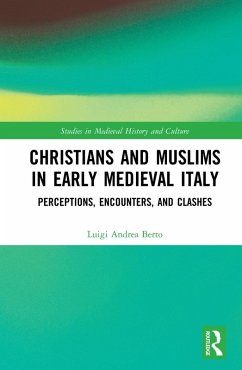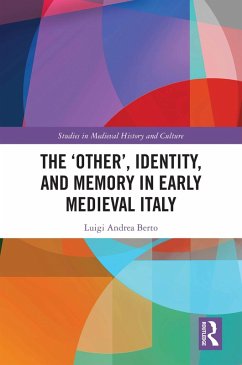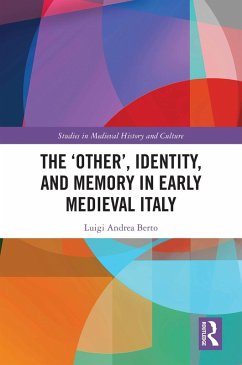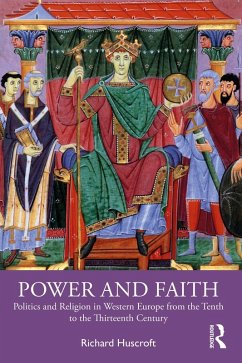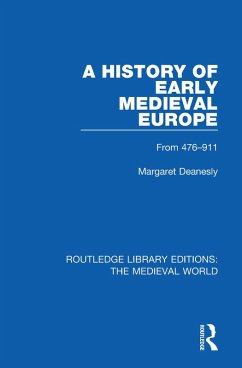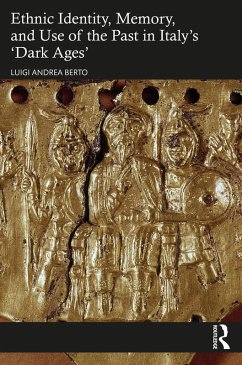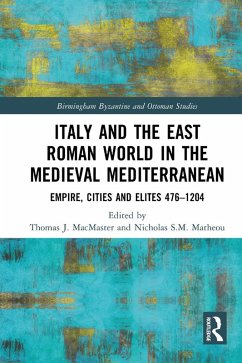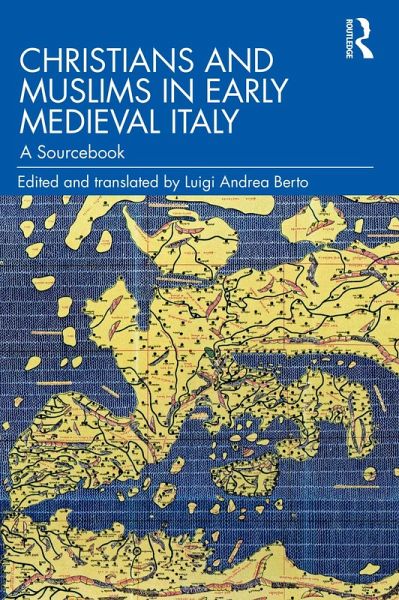
Christians and Muslims in Early Medieval Italy (eBook, ePUB)
A Sourcebook
Versandkostenfrei!
Sofort per Download lieferbar
39,95 €
inkl. MwSt.
Weitere Ausgaben:

PAYBACK Punkte
20 °P sammeln!
In the early Middle Ages (ninth to eleventh centuries), Italy became the target of Muslim campaigns. The Muslims conquered Sicily, ruled her for more than two centuries, and conducted many raids against the Italian Peninsula. During that period, however, Christians and Muslims did not always fight each other. Indeed, sometimes they traded with the 'other' and visited the lands of the 'other'.By presenting the annotated English translation of the early medieval primary sources about how Muslims and Christians perceived each other, the circulation of news about them, and their knowledge of their...
In the early Middle Ages (ninth to eleventh centuries), Italy became the target of Muslim campaigns. The Muslims conquered Sicily, ruled her for more than two centuries, and conducted many raids against the Italian Peninsula. During that period, however, Christians and Muslims did not always fight each other. Indeed, sometimes they traded with the 'other' and visited the lands of the 'other'.
By presenting the annotated English translation of the early medieval primary sources about how Muslims and Christians perceived each other, the circulation of news about them, and their knowledge of their opponents, this book aims to clarify the relationship between Muslims and Christians in early medieval Italy. Moreover, it proves that in that period the faithful of the Cross and those of the Crescent were not so ignorant of one another as is commonly believed.
Christians and Muslims in Early Medieval Italy: A Sourcebook is the ideal resource for upper-level undergraduates, postgraduates, and scholars interested in the relationships between Christians and Muslims in medieval Italy and the Mediterranean.
By presenting the annotated English translation of the early medieval primary sources about how Muslims and Christians perceived each other, the circulation of news about them, and their knowledge of their opponents, this book aims to clarify the relationship between Muslims and Christians in early medieval Italy. Moreover, it proves that in that period the faithful of the Cross and those of the Crescent were not so ignorant of one another as is commonly believed.
Christians and Muslims in Early Medieval Italy: A Sourcebook is the ideal resource for upper-level undergraduates, postgraduates, and scholars interested in the relationships between Christians and Muslims in medieval Italy and the Mediterranean.
Dieser Download kann aus rechtlichen Gründen nur mit Rechnungsadresse in A, B, BG, CY, CZ, D, DK, EW, E, FIN, F, GR, HR, H, IRL, I, LT, L, LR, M, NL, PL, P, R, S, SLO, SK ausgeliefert werden.




